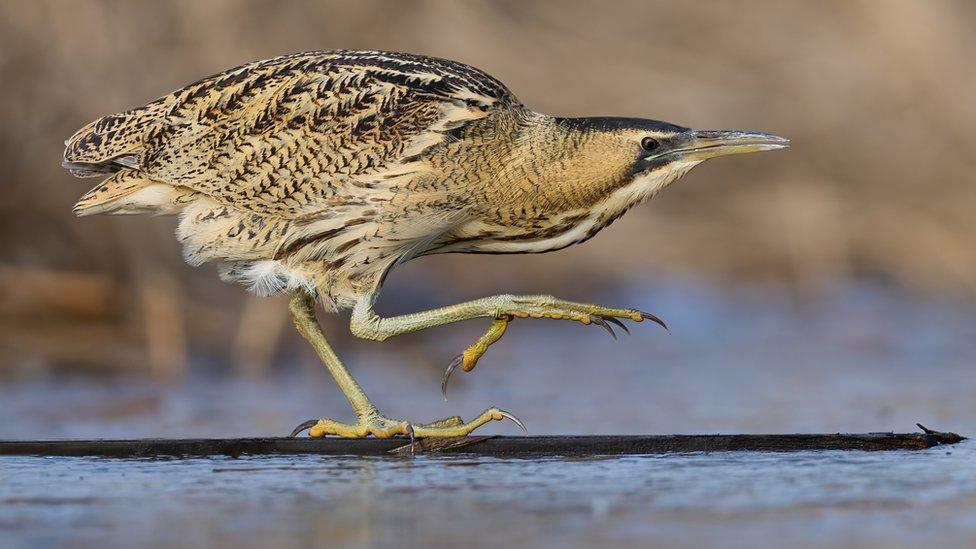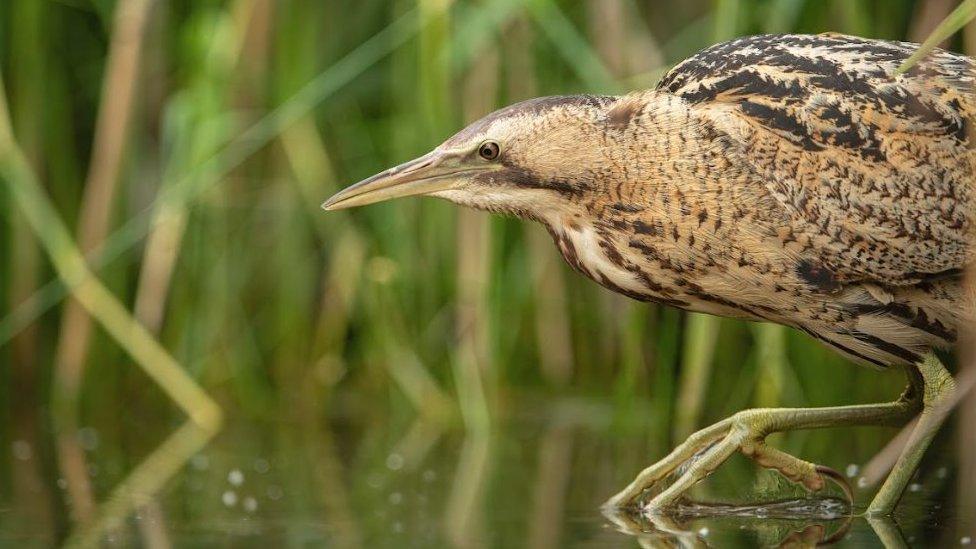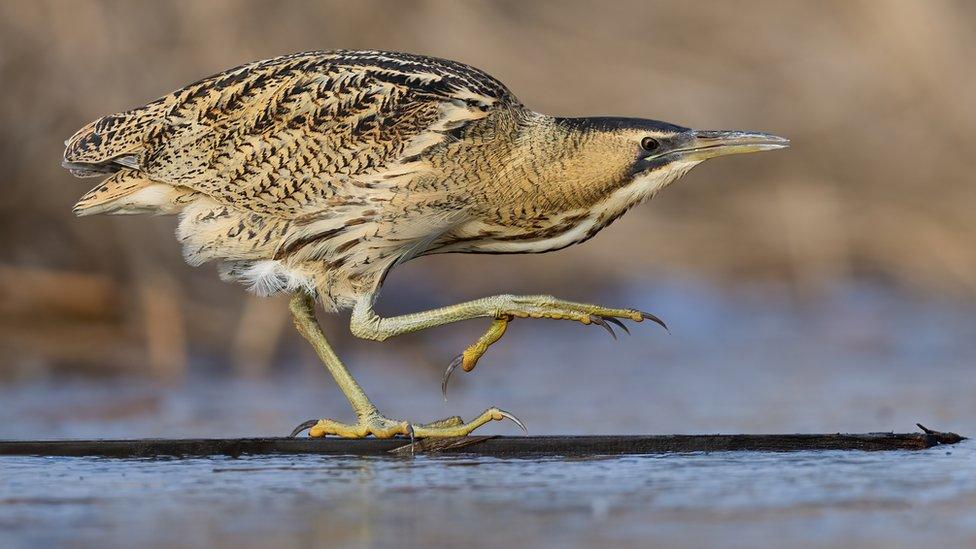Near-extinct bitterns booming at Cambridgeshire bird reserves
- Published

A nationwide conservation effort was launched to help boost the rare bird's numbers
A near-extinct breed of bird is booming again according to the latest figures from the RSPB.
Bitterns vanished from Britain in the 1870s and, after making a comeback, almost went extinct again in the 1990s.
A new record number of 234 males have now been counted, with about 5% of them at reserves in Cambridgeshire.
Chris Hudson, RSPB site manager at Fen Drayton Lakes, said the increase was "good news" for these "incredibly rare birds".
Bitterns are shorter than their cousins, grey herons, with pale brown plumage that allows them to camouflage themselves in reeds.
The species was pushed to the brink of extinction in Victorian times when their reedbed homes were drained for reservoirs.
But now, the latest RSPB monitoring project found "figures are up 24% on the number of booming bitterns recorded just five years ago, marking the significant conservation progress that has been made in the species' recovery".

It's the loudest bird in the UK
The organisation said the incredible and far-carrying "booming" sound of the birds was made when the males are looking to attract a mate.
Bitterns are the loudest bird in the UK, with their boom audible up to three miles away in spring, so survey volunteers listen out for and record this in an effort to build a national picture of how the birds are faring.
Mr Hudson described bitterns as "charismatic, enigmatic birds, creeping about in the reeds with this amazing song - this booming call that gives the males their name - the boomer".

Chris Hudson said conservation efforts to encourage bitterns were paying off
He said: "We care about them because they're incredibly rare birds and really, really important.
"They became extinct in the 19th Century and nearly extinct again at the end of the 20th Century, but they're back again which is really good news."
Mr Hudson added drainage of wetlands through the 20th Century and a loss of habitat "like so many of our treasured wild species" was partly to blame for the birds disappearing.
"It's something we're working all the time to try and reverse but it's paying dividends with the bittern.
"The Fens probably has about a quarter of all the UK's bitterns in it and just in our two reserves here, Fen Drayton Lakes and Ouse Fen, we've probably got over 5% of the UK population so it's really fantastic.
"The new record number that we got last year is 234 but that's a tiny number of birds, and as big a number as it is compared to where we were in 1997 - there were 11 of these male birds left in the UK."
For those hoping to hear the boom of the bittern, he said dawn and dusk were the best times.

Follow East of England news on Facebook, external, Instagram, external and X, external. Got a story? Email eastofenglandnews@bbc.co.uk, external or WhatsApp 0800 169 1830
- Published6 April 2024

- Published18 March 2024

- Published6 April 2023